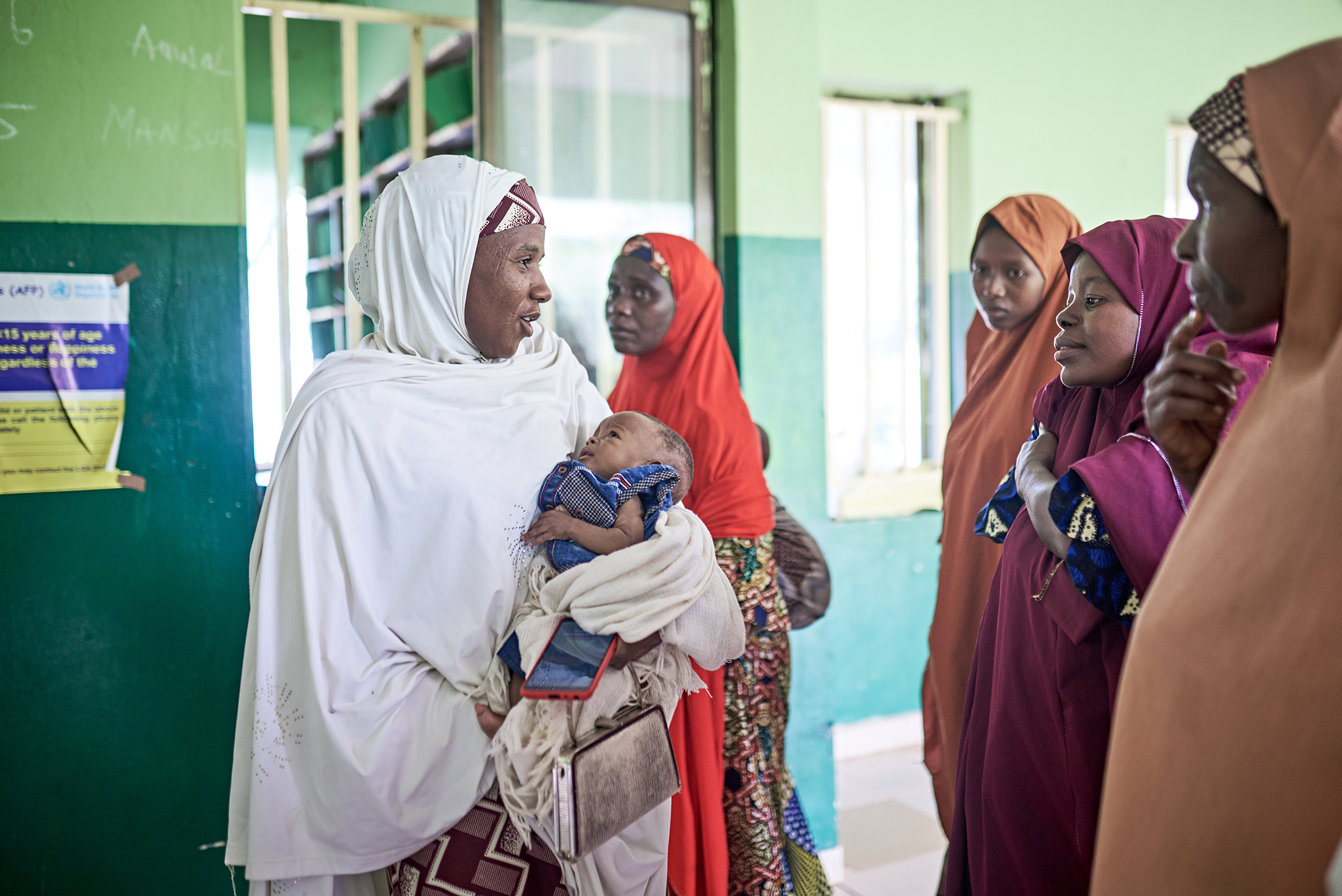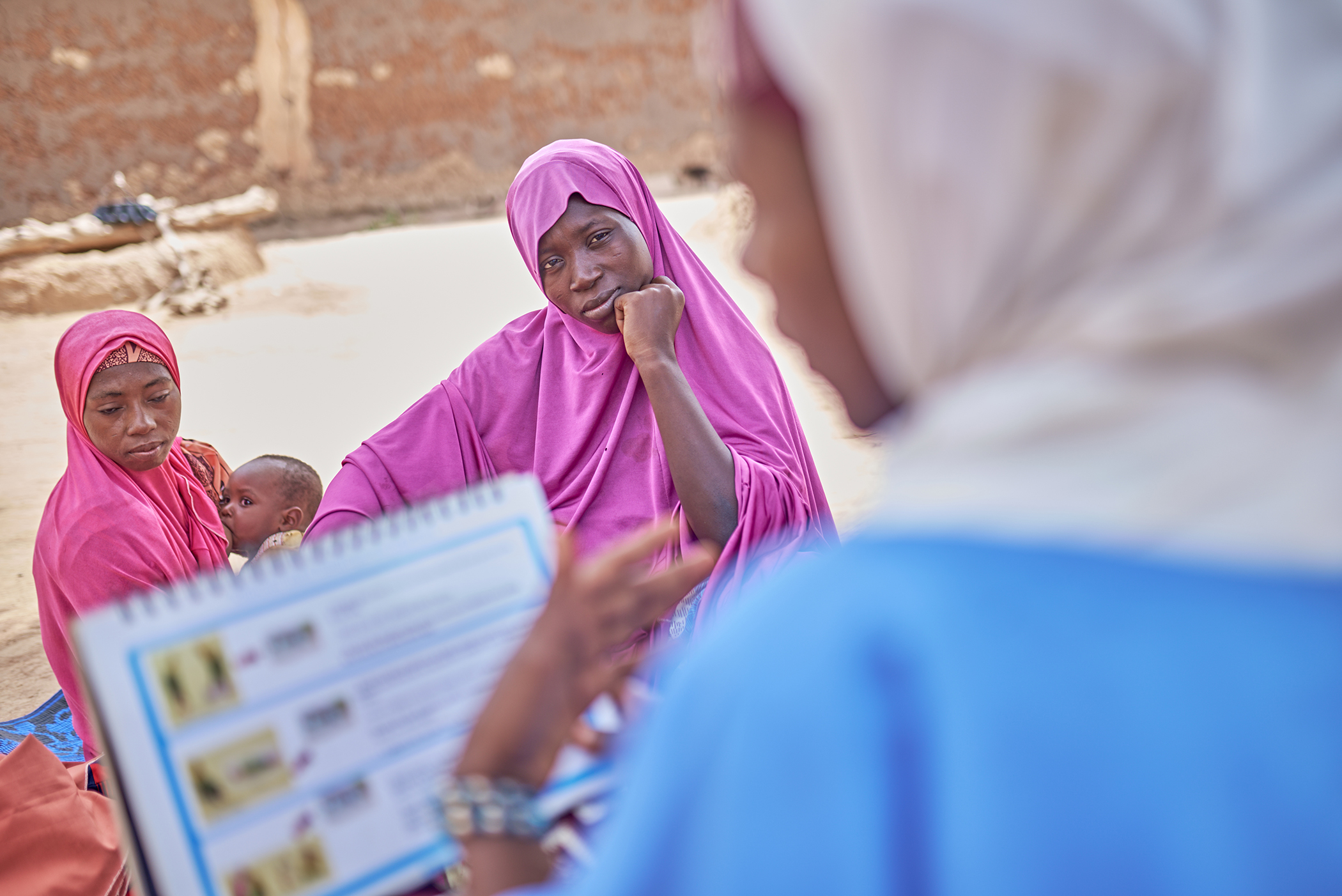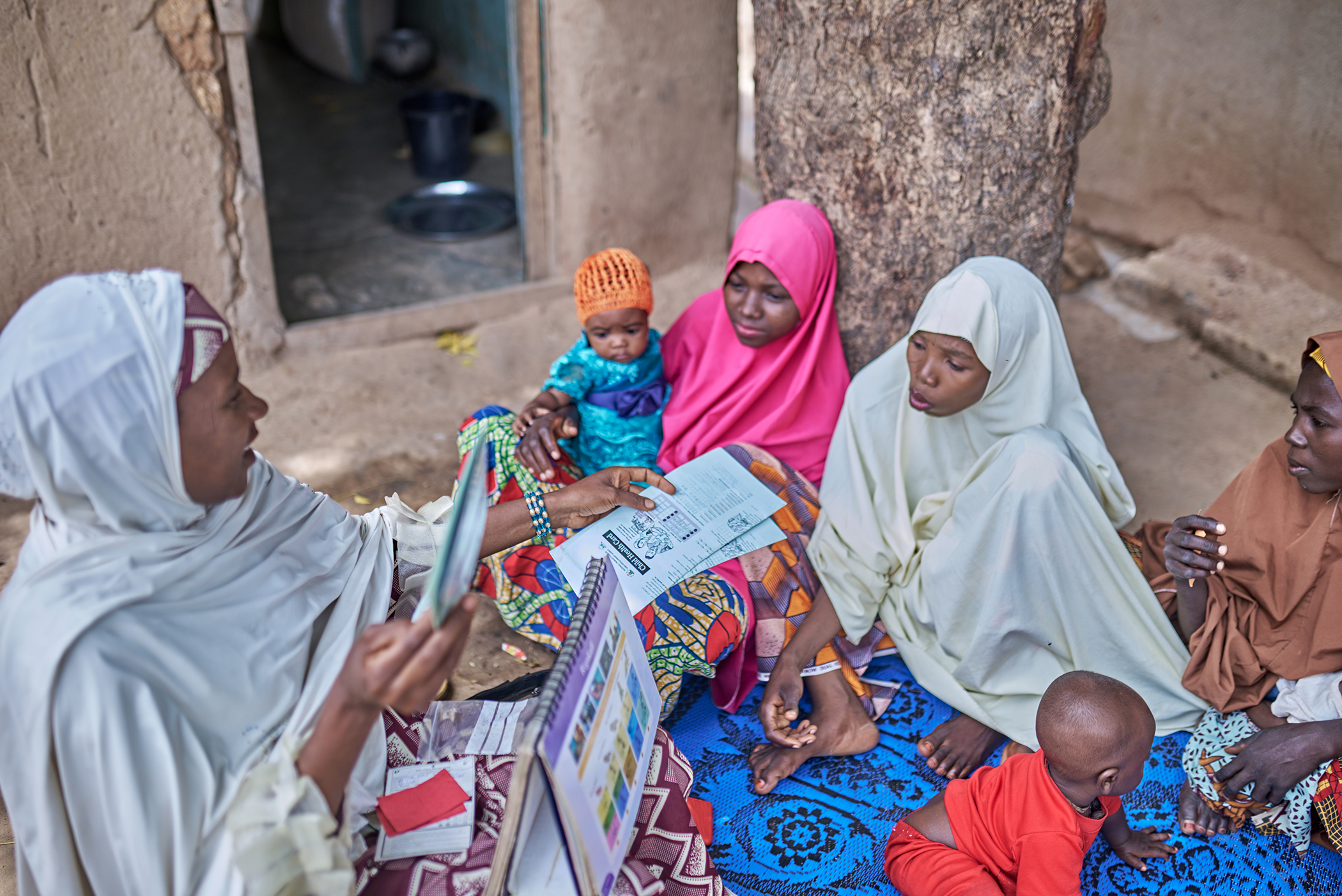"If these were your children, you wouldn't vaccinate them."
That is what a father in Bauchi state, Nigeria once told Furera Aliyu, a community health worker who was going door-to-door encouraging parents to immunize their children against polio.
Aliyu, a mother of six, corrected the man, sharing that her children were all fully vaccinated.
Shortly after, children from the household, who were playing outside, sensed that Aliyu was not welcome and began throwing stones at her.
"If you know the implication of denying these kids immunization, you wouldn't have said what you said," Aliyu told their father. "The burden of being a polio survivor, especially in the context of this part of the world, is [difficult]."
 Furera Aliyu, 39, walks back after a day of work in Nigeria's Bauchi State. Aliyu is a frontline worker and polio team supervisor with the Community Re-Orientation Women Network (CROWN).
Furera Aliyu, 39, walks back after a day of work in Nigeria's Bauchi State. Aliyu is a frontline worker and polio team supervisor with the Community Re-Orientation Women Network (CROWN).
She explained that if his children were to become infected with polio, the potential consequences could be devastating. Polio, a highly infectious viral disease, primarily affects children under 5 years of age, is typically contracted through fecal-oral transmission, and can cause permanent paralysis within hours.
There is no cure for polio, but two vaccines help protect children against the virus — the inactivated poliovirus vaccine (IPV), given as a shot in the leg or arm, and the oral poliovirus vaccine (OPV), administered by two drops in the mouth.
Aliyu told the man about her experience immunizing children and the low chances of severe adverse reactions. An estimated 1 in every 1 million doses of the polio vaccine can cause a severe allergic reaction.
After being provided with that knowledge, the father decided to vaccinate his children.
"Today, that household has no problem with accepting vaccinations," Aliyu told Global Citizen in her native language of Hausa, through an interpreter.
In the 1980s, polio paralyzed 1,000 children daily. Wild poliovirus cases have decreased by over 99% since 1988.
But while there were only 30 reported cases of the virus in 2022, failure to fully eradicate polio could result in a global resurgence of the disease.
 Furera Aliyu speaks to a father on the importance of immunizing his children in Nigeria's Bauchi State in October 2023.
Furera Aliyu speaks to a father on the importance of immunizing his children in Nigeria's Bauchi State in October 2023.
Aliyu, who lives in Konkiyel village, in Darazo, a local government area of Nigeria's Bauchi State, is a frontline worker and polio team supervisor with the Community Re-Orientation Women Network (CROWN).
CROWN comprises women volunteers who, in collaboration with the state's health care services, support communities with various development projects focusing on maternal and child health.
"Once we [frontline workers] enter a household, the first thing we see is what triggers the conversation," Aliyu explained. "If I see a pregnant woman, then the conversation is around safe delivery, family planning, and antenatal care."
When children are in the household, it leads to conversations around child immunization. If the home appears unsanitary, this sparks a conversation about how sanitation and hand washing helps prevent cholera.
These frontline workers also support polio surveillance and campaigns by raising awareness around polio vaccination, administering vaccines, and keeping detailed immunization records.
Aliyu, who works across several of Konkiyel's 58 settlements, said encouraging vaccine uptake is particularly difficult in settlement communities that consist primarily of herders and migrants who have fled from other parts of the country, mainly due to insecurity.
"There is so much… distrust between those community members and the government, feeling that they [the settlers] have bigger problems that need to be intervened, rather than just providing [vaccines] free," Aliyu said. "They feel that the government is not prioritizing their needs, and so they become resistant and also non-compliant [during vaccine campaigns]."
In Bauchi State, 35% of children have failed to receive any vaccination, according to Nigeria Health Watch.
 A young child looks at the educational materials brought by Furera Aliyu as she speaks to women in the community on immunization, antenatal care, and general health in Nigeria's Bauchi state in October 2023.
A young child looks at the educational materials brought by Furera Aliyu as she speaks to women in the community on immunization, antenatal care, and general health in Nigeria's Bauchi state in October 2023.
During vaccination campaigns, Aliyu works with a team of women volunteers who canvass door-to-door. When they encounter households who refuse to vaccinate their children, the teams seek intervention from traditional leaders or the village head. These authoritative and respected leaders may evict households who choose not to vaccinate their children, as this puts everyone else at risk.
"If you are not willing to accept your kids to be vaccinated, then [the leader says] you have no business in this community, so he gives you a particular period of time for which he expects you to pack your family and move out," Aliyu said.
According to Aliyu, low levels of education among people in settlement communities also contribute to their low vaccination rates, a correlation that numerous studies in Sub-Saharan Africa have supported.
Aliyu herself never attended formal school in childhood, but attended Islamic classes. Her father, who had 23 children, only enrolled his sons in formal schooling.
"At the time I was married, I couldn't even write my own name," Aliyu told Global Citizen.
Seven years ago, Aliyu, her husband's second wife in their polygamous marriage, began learning to read and write from his first wife, Rabi Shehu, who is a tutor in an adult education school.
Now, Aliyu is enrolled in a community college for Arabic and Islamic studies. She is literate in Arabic and has basic English literacy, making her the only one of her 13 sisters who can read and write. These skills have proved helpful on the job, as she visits households to take note of children's vaccination status and other health information.
"It makes me happy when I intervene and make sure people get the required health care services. That has been my long-term dream," she said. "Even though I don't have formal education, through my volunteering, I ensure that people, especially women and children, access primary health care."
 Furera Aliyu, 39, poses for a portrait in Konkiyel Village, Bauchi state, Nigeria in October 2023.
Furera Aliyu, 39, poses for a portrait in Konkiyel Village, Bauchi state, Nigeria in October 2023.
The World's Best Shot is a profile series dedicated to sharing the stories of vaccine activists around the world.
Disclosure: This series was made possible with funding from the Bill and Melinda Gates Foundation. Each piece was produced with full editorial independence.


